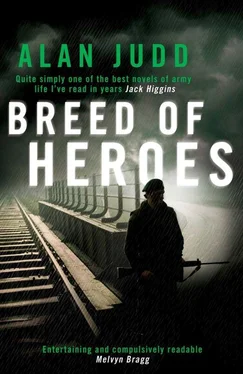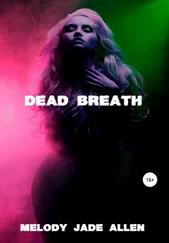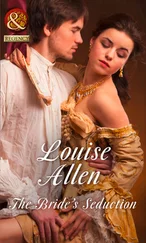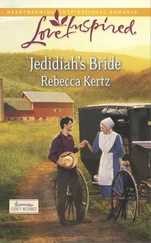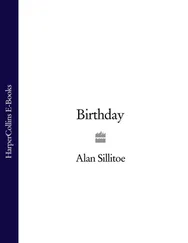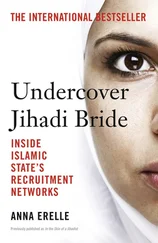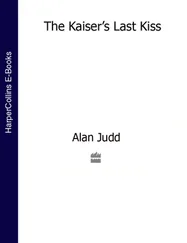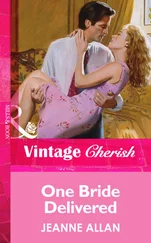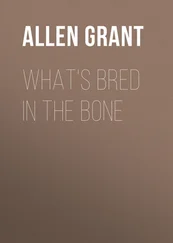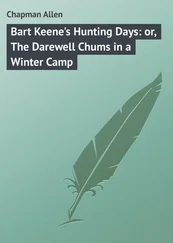Alan Judd - A Breed of Heroes
Здесь есть возможность читать онлайн «Alan Judd - A Breed of Heroes» весь текст электронной книги совершенно бесплатно (целиком полную версию без сокращений). В некоторых случаях можно слушать аудио, скачать через торрент в формате fb2 и присутствует краткое содержание. Год выпуска: 2011, ISBN: 2011, Издательство: Simon & Schuster UK, Жанр: Современная проза, на английском языке. Описание произведения, (предисловие) а так же отзывы посетителей доступны на портале библиотеки ЛибКат.
- Название:A Breed of Heroes
- Автор:
- Издательство:Simon & Schuster UK
- Жанр:
- Год:2011
- ISBN:9781847397720
- Рейтинг книги:3 / 5. Голосов: 1
-
Избранное:Добавить в избранное
- Отзывы:
-
Ваша оценка:
- 60
- 1
- 2
- 3
- 4
- 5
A Breed of Heroes: краткое содержание, описание и аннотация
Предлагаем к чтению аннотацию, описание, краткое содержание или предисловие (зависит от того, что написал сам автор книги «A Breed of Heroes»). Если вы не нашли необходимую информацию о книге — напишите в комментариях, мы постараемся отыскать её.
Alan Judd tells Thoroughgood’s tale with verve, compassion and humour. The result is an exceptionally fine novel which blends bitter human incident with army farce.
A Breed of Heroes — читать онлайн бесплатно полную книгу (весь текст) целиком
Ниже представлен текст книги, разбитый по страницам. Система сохранения места последней прочитанной страницы, позволяет с удобством читать онлайн бесплатно книгу «A Breed of Heroes», без необходимости каждый раз заново искать на чём Вы остановились. Поставьте закладку, и сможете в любой момент перейти на страницу, на которой закончили чтение.
Интервал:
Закладка:
Charles glanced rather than spoke his thanks. Van Horne, he recalled, was unfailingly polite and unreadable. Of Dutch extraction, better educated than most soldiers, one of those voluntary misfits you sometimes come across in the AAC(A). There could be worse accomplices. Charles adjusted his belt and flak jacket and checked his pistol yet again. ‘It’s very kind of you to have helped,’ he said finally.
‘The CO sent me to find you, sir. I’ve been working in the Intelligence Section because Captain Beale didn’t realise I was supposed to be with you. Neither did I, I’m afraid to say, sir, or I’d have been here before.’
‘How long are you with me for?’
‘Permanently, sir. I’m your assistant.’ Van Horne smiled politely. Throughout their acquaintanceship Charles never knew him simply smile. If it was not a polite smile it was usually enigmatic, or ironic or, occasionally, triumphant. He rarely allowed himself the luxury of an uninhibited smile. He had even features and intelligent green eyes that gave away nothing. He also had an easy assumption of familiarity that almost, but never quite, went beyond the bounds. ‘Our position is rather exposed, sir,’ he said.
‘What?’ Charles dragged his thoughts away from contemplation of his recent buffoonery. ‘Yes, of course. We’ll join the others.’ They made their way to the side street where the rioters now were, a seething mass somewhere further down in the darkness. Soldiers were crouched at the sides of the streets, while the press wandered nonchalantly about waiting for something to happen. ‘Have you got a camera?’ Charles asked Van Horne.
‘Yes, sir. With a built-in flash.’
‘Take some pictures if anything happens.’ Charles thought he could ensure that at least one paper would not be carrying pictures of himself cowering. Beazely would be grateful for anything. He and Van Horne strolled amongst the press, he with his hands clasped behind his back in the usual manner of officers conscious of their position but not knowing what to do with it. The problem was that officers did not need hands and, pockets being forbidden, there was nowhere else they could go without looking untidy. To his relief, none of the press mentioned his recent humiliation. He decided it must have been a judgment for having relished Beazely’s plight.
Once again, Van Horne was perturbingly perceptive. ‘The press were very impressed by your evasive actions, sir. I was myself, if I may say so. In fact, you were so fast, sir, that it was some seconds before I realised what you were evading.’
8
During the next twenty minutes or so nothing dramatic happened but the trouble continued in a haphazard sort of way, sustained by its own momentum and by the fact that everyone involved was still there. It was expected that worse was to come but no one had any idea what it would be.
Presently two Ferret scout cars were ordered down because of the spotlights they carried. They came from a Brigade armoured unit, part of which had been made available to the CO, and arrived with a fiendish whine and a screech of brakes. They stopped a short way past the leading soldiers with their Brownings, which they were forbidden to use except on single shot, pointing at the mob. One of them switched on its lights and the street ahead was bathed in a hard glare. It was only seventy yards or so long and ended in a T junction formed by a row of squat houses and another, even narrower, street. A mob of not more than fifty people stood at the far end, doing nothing very much and obviously startled by the lights, against which many of them were shielding their eyes. The CO stood just behind the leading Ferret and spoke through his megaphone. ‘Go home. I am warning you to go home immediately. If you do not clear the area voluntarily it will be my duty to clear it. I shall say it once more — go home.’
The megaphone distorted his voice slightly but it was slow and loud and clear. There was a cluster of microphones around the CO as he spoke and he looked flustered. Charles and Van Horne moved them back a little. One journalist, a well-dressed young man with an Irish accent, pushed past Charles and asked the CO how he was going to clear the area. ‘Wait and see,’ snapped the CO. ‘Speak to my PRO.’
Charles moved him away and answered, ‘I’m waiting to see, too.’
‘Is he going to shoot these people?’ Charles could not see the man’s face properly. His voice was hard and aggressive.
‘It depends on what they do. You know the rules of the Yellow Card.’
The man pointed to the Brownings on the Ferrets. ‘Is he going to use those things on them?’
‘They’re only allowed to fire single shots in this sort of area.’
‘So he’s not?’
‘Not on automatic, no.’ Charles felt less certain than he sounded. If the CO were again gripped by his Light Brigade fever it could well lead to the deployment of RAF Strike Command. Further conversation was prevented when the mob responded to the indignity of being lit up. A shower of petrol bombs arc-ed through the air and smashed on to the road, making a dozen instant fires. The flames spread in sheets around the point of impact and burnt fiercely for a few seconds, often an inch or so above the surface, depending on the vapour. One landed amongst the journalists, scattering them, and another slightly burned a soldier near Charles. A third crashed on to the front of the leading Ferret and the vehicle was instantly engulfed in flame as the petrol coursed over it. Charles could see the commander struggling in his hatch. He thought the vehicle would either blow up or the crew would be starved of oxygen by the flames. For a few seconds he had no idea what to do and stood watching with everyone else. Fortunately, a sergeant with more presence of mind ran forward, pulled an extinguisher off the back of the Ferret, and applied it to the flames, which quickly died. There was some shouting as the Ferret reversed sharply, its lights having gone out. The second one immediately put on its lights and moved forward to take its place. Though the crew was unharmed the incident dramatically heightened the tension. Everyone suddenly became more purposeful and businesslike, including those who, like Charles, had at that moment nothing in particular to do. It was as though all that had happened up till then had been part of a ritual, but now someone had broken the rules.
A couple more petrol bombs provoked a fusillade of rubber bullets in reply, though the range was too great for them to be very effective. Nevertheless, the noise was impressive and sent several bombers scurrying away behind corners. The mob had now thinned down to a hard core of probably no more than twenty or thirty at the very bottom of the street. The Ferret’s lights were not powerful enough to show them clearly at that distance and they could only be glimpsed as vague forms against the houses as they ran from cover to cover, or stepped out momentarily from behind corners to hurl a fizzing petrol bomb. Then there were three very loud explosions which ripped viciously through the narrow street, leaving a deafening silence. Someone said they were nail bombs — six-inch nails embedded in lumps of gelignite with a hand-lit fuse. They fell well short of the nearest soldiers since the bombers did not venture into the light.
Charles and Van Horne crouched together in a conveniently large doorway, a couple of yards back from the leading soldiers who were on the opposite side of the road. Several of the more adventurous cameramen were also in the forefront of things, and Charles had to prevent them from using their flashes or lights because these illuminated the soldiers’ positions. The CO had several times shouted warnings about the possibility of gunmen and the need to keep heads down. Filming had therefore to be done by the lights of the Ferret and the occasional flaring petrol bomb. The cameramen wandered about the street with impressive unconcern, always looking for the best angle. Charles would have been content to admire had he not every so often had to go and retrieve one who had wandered too far forward. Sometimes he left it to Van Horne, but he seemed equally unconcerned and Charles felt he had to do more than his share so that he would not appear to be as frightened as he felt. The cameramen were nervous but it was a different kind of nervousness. They flitted about like anxious birds, always wanting more light, more movement and more action, never satisfied. They were thin, sharp-faced, agile, worried-looking men, completely absorbed in their work. They rarely had time for a word with anyone. The soldiers, on the other hand, though also sharp in their movements, kept up an unceasing back-chatting humour which consisted largely of expletives. They were perky, bouncy and keen, but cautious.
Читать дальшеИнтервал:
Закладка:
Похожие книги на «A Breed of Heroes»
Представляем Вашему вниманию похожие книги на «A Breed of Heroes» списком для выбора. Мы отобрали схожую по названию и смыслу литературу в надежде предоставить читателям больше вариантов отыскать новые, интересные, ещё непрочитанные произведения.
Обсуждение, отзывы о книге «A Breed of Heroes» и просто собственные мнения читателей. Оставьте ваши комментарии, напишите, что Вы думаете о произведении, его смысле или главных героях. Укажите что конкретно понравилось, а что нет, и почему Вы так считаете.
